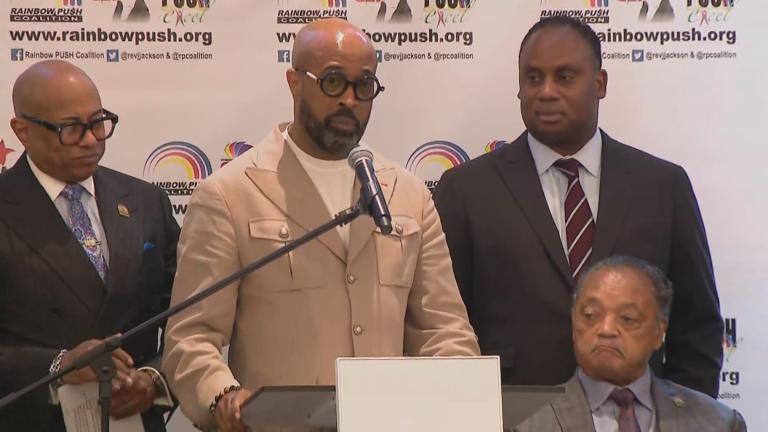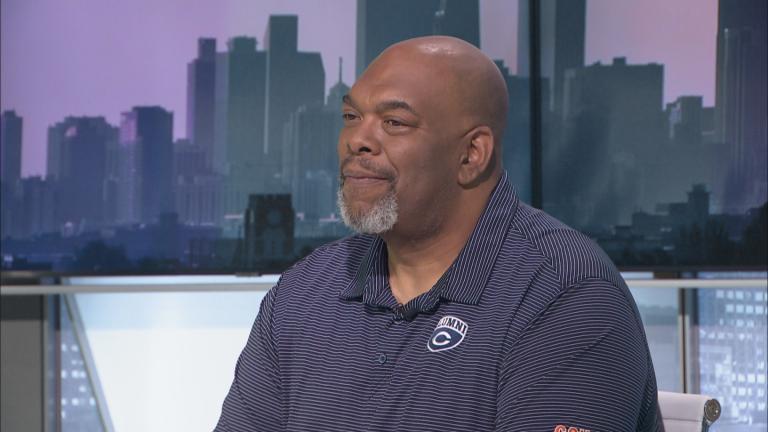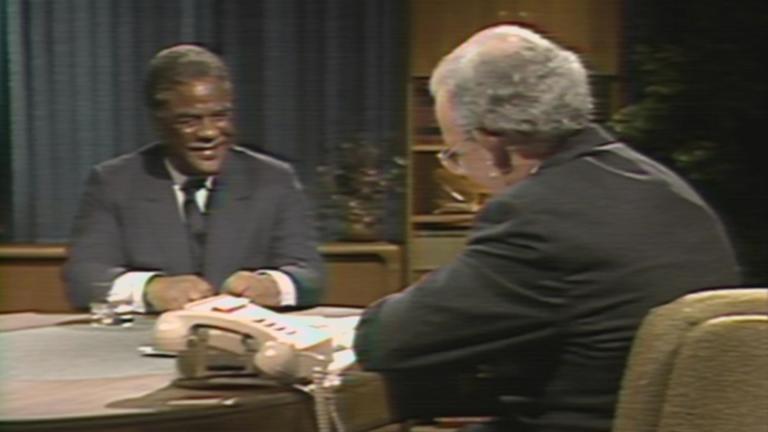In a major departure from past policy, the Chicago Board of Education has announced it intends to move away from a system built on school choice.
It’s a system that means Chicago Public Schools families can apply to have their children attend schools across the city, versus being required to attend their neighborhood school. Critics say that means neighborhood schools lose out to better-funded competitors as a result.
The resolution of the board starts a process that aims to reinvigorate the city’s neighborhood schools — fulfilling a campaign promise made by Mayor Brandon Johnson.
At the time, Johnson — a former organizer for the Chicago Teachers Union — called Chicago’s system of school choice a “Hunger Games scenario.”
Board Vice President Elizabeth Todd-Breland explained the reasoning behind the shift at a board meeting last week.
“Despite a myriad of education reforms over the course of many CPS strategic plans, we have challenges and gaps that have persisted,” Todd-Breland said. “The opportunity gaps that we are seeing in the data … are driven by long-standing structural racism. Our school choice system that we operate was built on this foundation that existed already of structural racism and socioeconomic inequality and it has provided opportunities for some. But our data is showing that it has also exacerbated inequities.”
Not everyone wants to see the current system dismantled and some say the board has not engaged with the communities, schools, students and parents that will be impacted — whether positively or negatively.
According to Andrew Broy, president of the Illinois Network of Charter Schools, school choice has driven improvements in educational achievement across the public school system.
“We have 122 campuses citywide that collectively educate 58,000 CPS students. 97% of those students are Black and Brown,” said Broy. “We’ve had great success on the West and South Side of the city increasing graduation rates. So we don’t think it’s smart to take away policy that’s driven such great gains.”
Broy was also critical of the process that led to this decision.
“This (is being) done in a shroud of secrecy,” said Broy. “There’s no public vetting on this. No community input, no draft released. We’ve got to fix that going forward because right now policy made in the dark doesn’t make sense.”
Cassandra Kaczocha, board president at Raise Your Hand, an organization that aims to empower parent voices and eliminate inequities in public education, said she welcomes the decision to focus resources on neighborhood schools.
“Every child in Chicago should be able to go to their neighborhood school, get a high-quality, highly resourced public education,” said Kaczocha.
However, Kaczocha also acknowledged all stakeholders need more information on the plan going forward.
“We do expect that the next step is community engagement and that we will have an opportunity to weigh in on what the details look like,” Kaczocha said. “Because right now, it’s a vision, it’s not a detailed plan.”
But Daniel Anello, CEO of Kids First Chicago, said that the CPS board made a mistake by setting a new direction for public schools without first fully engaging school communities.
“I actually think when you put out a resolution like this and you set a direction — and Kids First Chicago is really focused on making sure we’re elevating and doing authentic parent engagement — they’re essentially saying, ‘Hey, this is where we’re going,’” Anello said. “And the only choice that parents really have in this case is how we get to whatever that destination is.”
Anello said authentic community engagement would have meant the board sought the views of all CPS stakeholders before announcing a major shift to the strategic plan.
“This engagement process starts first,” said Anello. “For us, it’s not about where we end up. We feel like the people who are most directly impacted — parents across the city — need to have a chance to voice where they want to go, but they didn’t have a chance.”
Anello also criticized the board for making the decision behind closed doors and “in deference to ideology rather than deference to the people that are going to be impacted by it.”
Tara Stamps, Cook County commissioner and administrator of new teacher development at the Chicago Teachers Union, said that what every parent wants is for the school closest to their home to be the best school for their child.
“What’s striking to me is when we talk about what’s in the best interest of young people — often Black and Brown young people — this whole conversation about a quality education is always at the detriment of our children,” Stamps said. “We’ve just disinvested from neighborhood schools.”
Stamps emphasized that CPS knows how to create high-achieving schools.
“We have countless and countless examples,” Stamps said. “But what happened is that once they lifted the consent decree (that desegregated Chicago schools), … when those mandates were lifted, people did not do the right thing by children of color. White children increasingly became enrolled in selective enrollment schools where they only make up 9% of Chicago Public Schools in the first place but make up well over 40% of selective enrollment schools.”








